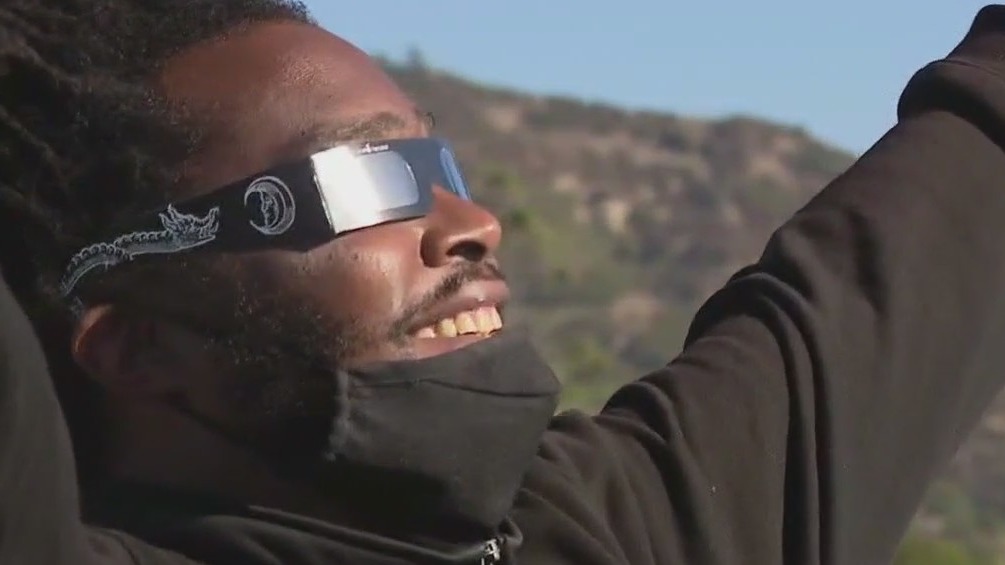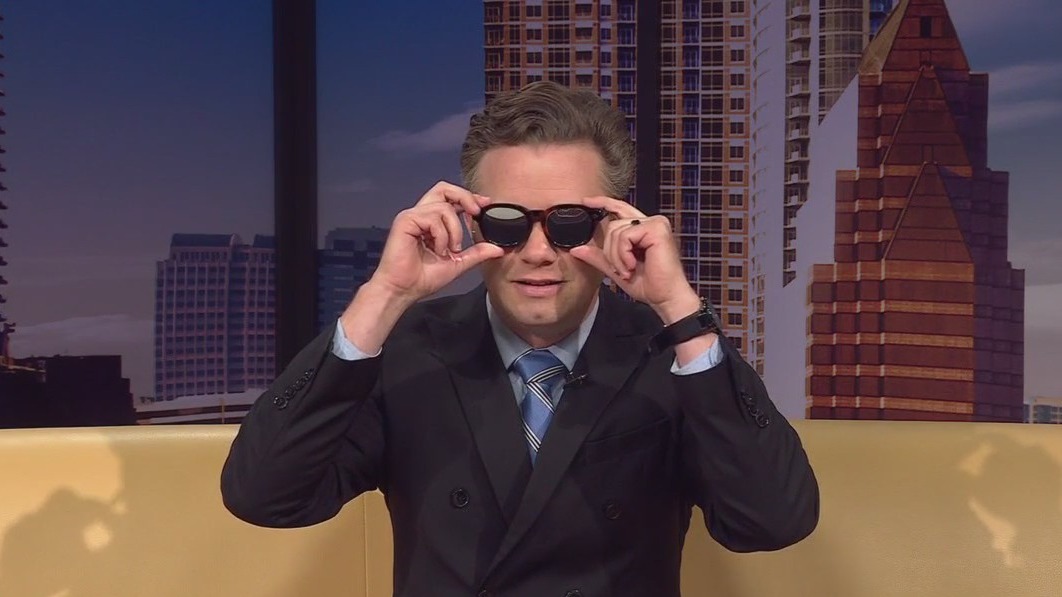Solar eclipse: Optometrist stresses importance of wearing eclipse glasses

Solar eclipse: Importance of glasses
An Austin optometrist is stressing the importance of wearing solar eclipse glasses during the celestial event.
AUSTIN, Texas - The countdown is on with the total solar eclipse, which is now less than a week away. While viewing the celestial event, it is very important to wear the proper glasses.
"Yes, you should wear glasses. You never want to stare at the sun at any time without protection. Even basic sunglasses are not going to give you enough protection during the eclipse. They make special eclipse glasses that meet an international standard that are designed to protect your eyes," says Arbor Eye Center Optometrist Ellen Crothers.
The ISO 12312-2 eclipse glasses are deemed safe for solar views, according to NASA.

Solar Eclipse 2024: Protect your eyes in style
On April 8, Central Texas will have a front row seat for the total solar eclipse. The most important thing is to protect your eyes, so why not do it with some style? Liya Brook, founder of Halo, joins us with more.
"If you wear glasses, if you wear contact lenses, you can put your solar glasses and your eclipse glasses right on top of your eye wear," says Crothers.
Crothers says viewing the eclipse without glasses can cause damage to the retina. It is the small lining in the back of the eye.
"You can actually suffer permanent vision loss. You can go blind from something called Solar Retinopathy," says Crothers.
The optometrist says Solar Retinopathy will take several days to develop, and while it can be treated, the effects can be long-lasting.
"You might not get full function of your vision back if you get damage from the sun, but symptoms will be blurry vision or loss of central vision. You might have distortion in your vision, you might have lots of color perception," says Crothers.

Overcast during eclipse?
The long range forecast indicates clouds may return to Central Texas this time next week. That means those cloudy skies could block the view of the total eclipse on April 8.
MORE ECLIPSE STORIES:
- Austin-Travis County officials ready for historic event
- When will the solar eclipse happen near me?
- Solar eclipse 2024 food deals and freebies that can’t be overshadowed
During the total solar eclipse, NASA recommends using a special-purpose solar filter to view the sun through a camera lens, telescope, or binoculars. NASA said the concentrated solar rays will cause serious eye injury and also supervise children using solar viewers.
"The same thing with elderly people or people with special needs in your life, you just want to take extra precaution for them. Take care of them first and then use your shield, so you can watch it yourself. This is a pretty amazing occurrence that a lot of people are not going to get a chance to see again," says Crothers.
NASA said to only view the eclipse directly without glasses during totality, where you can no longer see any part of the sun. When the sun reappears, put your glasses back on.

